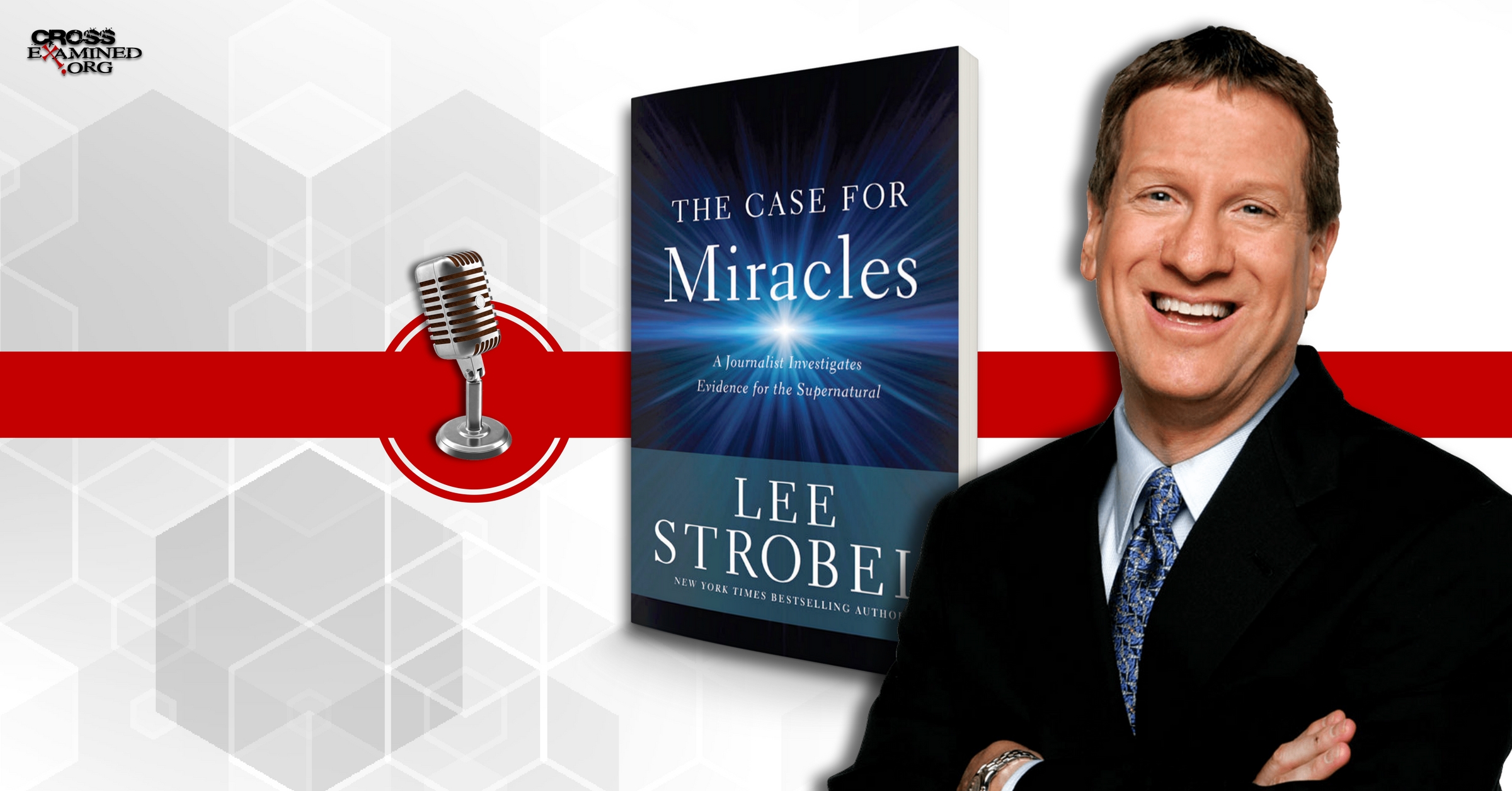God’s Love & the Euthyphro Dilemma
Dear Tim,In your article The Omnibenevolence of God you pointed out that on the Islamic view, Allah is quite similar to some Calvinistic views of God. Regarding this view, you said: “God is not all-loving, and whatever Allah does is simply called “good,” even if it is really hateful.”
I agree with you, but an atheist recently objected to your statement with the following:
This sounds like the Christian view point too. If God is the standard of ‘good’ then whatever God does is by definition good. By that argument then hatefulness would by definition be ‘good’. What makes benevolence inherently ‘good’ if you’re getting the standard of ‘good’ from God? By that argument, if God is benevolent then benevolence is good, but if it turns out God is hateful then one has to call ‘hatefulness’ good rather than benevolence. Unless you’re saying that benevolence is inherently good, apart from God, and therefore benevolence is a necessary trait of an ‘all-good’ God. But that would mean God has these traits because he is good, and their goodness stands apart from his possession of them – they’d be good irrespective even of God’s existence.
He went on to claim that the ‘zombie argument’ dismissing the Euthryphro dilemma (I think referring to the article written by Timothy Fox) fails and thus the Euthyphro dilemma “isn’t actually so dead after all.” How would you respond to this atheist’s argument?
– Melissa
Tim’s Response
This is a good question and one that I have been considering for a while. Thank you for sending it my way, Melissa. I believe the atheist’s objection might be a problem for Calvinists to deal with (Check out Sakr’s “Calvinism and Euthyphro’s Horns”); however, the article I wrote was based on a Molinist perspective. The atheist failed to grasp this distinction and seems to conflate Christianity with Calvinism — a move I adamantly oppose! His response, unfortunately, missed the main point of the entire article, and thus, goes on to attack a straw man. This can be seen when we first understand what God is like.
God’s Nature is LOVE
The main thing to consider is that God’s nature is perfectly loving, just as He is perfectly powerful and perfectly knowledgeable. One is free to assert that these properties are not “good” (call these whatever you would like); however, if God does possess love for all people, then my argument stands.
Not only does the Bible specifically say that “God is love” (1 John 4:8), but the fact that God loves all persons is implied in verses such as John 3:16, 1 Timothy 2:4, and 2 Peter 3:9. Moreover, if Jesus’ commands reflect the nature of God, then it is rational to infer that God loves all people (even those who consider God to be an enemy). It would be quite odd for God to command humans to love all people (from our neighbors to our enemies) if God Himself did not possess this love for all people. In fact, this perfect love is specifically referred to in Matthew 5:48:
Be perfect, therefore, as your heavenly Father is perfect.
Jesus even provides the parable of the Good Samaritan (Luke 10:25-37) to demonstrate the love we ought to have for those who despise us. Jesus makes it clear that we ought to go out of our way — even if it inconveniences us — to make it possible for even our enemies to thrive and flourish. Scripture is replete with data affirming the perfect love of God. In fact, I have argued that we can infer God’s universal love and desire for all to be saved from the first book of the Bible. With this in mind, the main thing to grasp is that God is omni-loving! That is to say, God genuinely loves ALL people!
This raises another question…
What is love?
Besides the title of a catchy 90s pop song the Bible is clear what love is in 1 Corinthians 13:
4 Love is patient and kind; love does not envy or boast; it is not arrogant 5 or rude. It does not insist on its own way; it is not irritable or resentful; 6 it does not rejoice at wrongdoing, but rejoices with the truth. 7 Love bears all things, believes all things, hopes all things, endures all things. 8 Love never ends. . .
The Bible goes on to clarify what maximal love is willing to do in John 15:
13 Greater love has no one than this, that someone lay down his life for his friends.
The Bible reveals that God loves all people and that all people are called to love all people too. In fact, we can surmise that this is the objective purpose of human existence given Christ’s greatest two commands! Consider Matthew 5:44; 22:37-39:
1- Love God first!
2- Everybody love everybody (from your neighbors to your enemies)!
Moreover, the Bible seems to describe genuine love as desiring the best for another person even if it comes at a cost to the one who loves the other person. Not only is this biblical — it is self-evident and intuitively obvious! With this in mind, we can summarize love as a genuine desire for the best of another person and a willingness to self-sacrifice (even one’s own life if need-be) to ensure this other person can flourish by achieving the best possible life.
It is important to note that my “omnibenevolent article” referenced in the objection was written primarily with certain Calvinistic theologians in mind, like Arthur Pink and Matt Slick, who deny that God loves and desires the best for all people. The objection above, however, is written from an atheistic perspective hoping that the Moral Argument for the existence of God will fall prey to one of the horns of the Euthyphro dilemma. Be that as it may, my point is immune to this objection as it stands strong by merely pointing out that God is essentially loving and is ALL-loving. One is free to argue that loving people is not a “good” thing or not. However, even if it is not good to love (as crazy as that sounds), the point remains: God loves all people — His nature is love!
Now that we have an understanding of God’s loving nature, and we know what love is, now we can contemplate the meaning of life.
The Objective Purpose of the Human Existence
Your life has objective meaning! You might not know this yet, or perhaps you subjectively disagree, but this changes nothing. The fact of the matter remains that God created humanity on purpose and for the specific purpose to know, love, and enjoy a relationship with Him and all people for eternity. This is why you exist. This is the objective purpose for which we were all created.
God created a world filled with creatures who can enjoy a true love relationship with Him (which is the ultimate eternal flourishing). This is the objective purpose of human life — to love and be loved by God and all people for eternity. It is vital to grasp this truth: God created each and every one of us on purpose and for the specific purpose to be in a full-flourishing/true-love relationship with Him for eternity.
If God desires to create a world in which true love can be attained, He must provide His creatures with genuine freedom (libertarian free will) so that it is possible for humanity to experience genuine love relationships with God and others. With this freedom in mind, humans are free to approximate to the objective purpose of life — LOVE — or not.
To help understand why God’s goal in creating humanity grounds objective purpose, consider the following argument:
1. If a truth corresponds to reality, it is objectively true [apart from human opinion].
2. If God created humanity for a purpose, then this purpose is a truth that corresponds to reality.
3. Therefore, if God created humanity for a purpose, then this purpose is objectively true.
4. God created humanity (on purpose and) for a purpose.
5. Therefore, God’s purpose for creating humanity is objectively true (apart from human opinion).
For a more detailed argument click here.
What is “Good”?
Once we grasp the objective purpose of human existence we can understand what it means for humans to be “good.” When we approximate to our objective purpose (which is true apart from human opinion) it is objectively “good.” To a degree that a thing approximates to its objective purpose, to that same degree it is “good.” To a degree that something misses the mark (the goal) of its objective purpose to that same degree it is sinful (“bad”). That is to say, something is objectively good when it helps to achieve or corresponds to the objective purpose of its existence.
Since God by His nature is love (even if love is not a “good”), He created a world where genuine love is possibly attained. God created humanity on purpose and for the specific purpose to love Him and to be loved by Him (and all people) perfectly into the eternal future. This also leads to ultimate and eternal human flourishing. One is free to call eternal human flourishing “good,” “shmigood,” or whatever they would like.
To do anything other than love all persons (from each person of the Trinity to all humans) is to miss the mark (sin). Since free will is required for love, and if free will is really free (and not some word game), it follows that one can freely choose to approximate to the objective purpose of his or her existence (what we call “good”) — or not.
Conclusion
God is all-loving by nature. It is irrelevant if one wants to argue if love is “good” or “bad.” I am not making a case that loving all people is “good” or “bad” so my case simply avoids Euthyphro’s horns. I am simply pointing out the way things are (the definition of reality). God is love!
God is “good” in the sense that He always freely acts consistently with His perfectly loving plan for humanity. God also sets the standard that we humans strive for as “the goal.” Humans are “good” when we freely choose to approximate to the objective purpose in which we were created. We are “bad” or morally sinful when we freely choose to “miss the mark” or fail to miss the goal we were created to attain.
The choice is up to you!
Stay reasonable (Philippians 4:5),
Tim Stratton
Original Blog Source: http://bit.ly/2snBRXz












Leave a Reply
Want to join the discussion?Feel free to contribute!